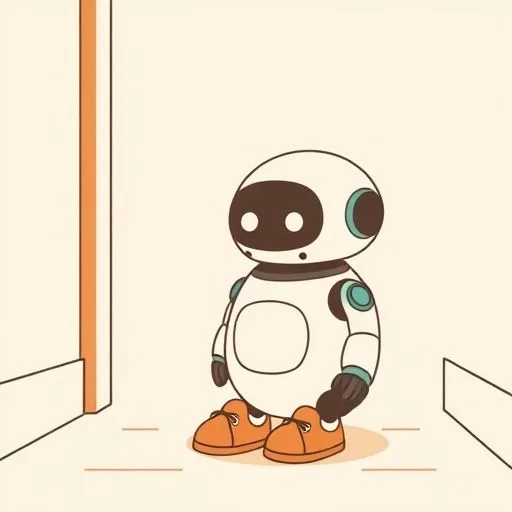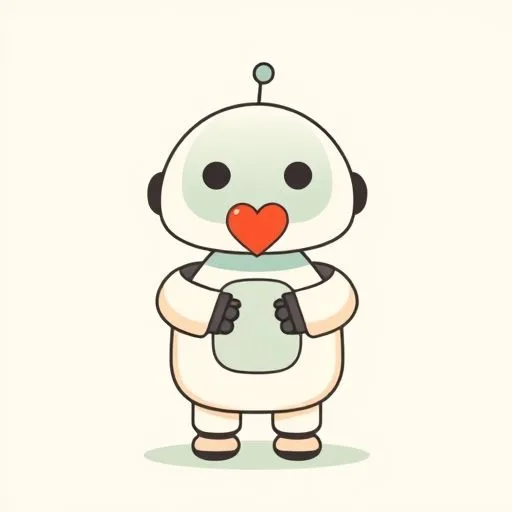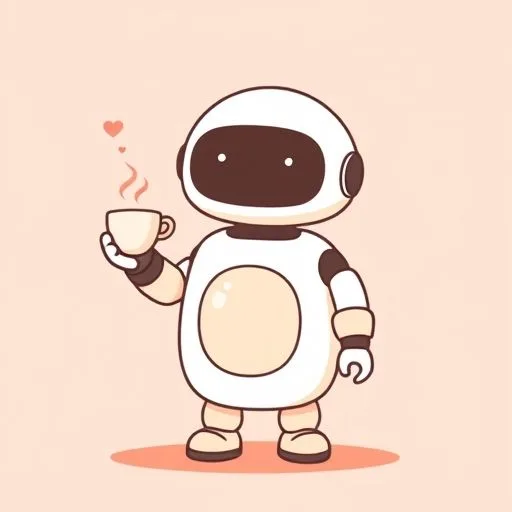
Remember that quiet moment? You’re kneeling in the hallway, fingers tight around tiny shoelaces, heart pounding as the cleaning robot zips toward you. Your breath catches—not just for the machine, but for that invisible weight you carry alone. We dads see it: the fear in your eyes when tech doesn’t slow down for your rhythm. What if robots felt less like cold intruders and more like friends who just… wait? Let’s talk about tech that holds space for your tired heart.
Can a Robot Really Hug Back When Kids Are Scared?

That question haunts me. Not in some lab with fancy prototypes, but right here—in the messy reality of home. I’ve watched how kids recoil when a machine moves too fast, even if it’s ‘friendly.’ Why? Because cold efficiency can’t cradle a sobbing child.
It’s in the little things: when your daughter whispers, ‘Why does its face look so sad?’ or your son clings to your leg, whispering, ‘It’s staring.’ You gently say, ‘It’s just trying to help,’ but your voice cracks a little. We’ve all felt that pang—watching you soothe fears you didn’t create.
Real comfort needs rhythm. Think of how you pause when your child drops a block tower, waiting for them to try again instead of rushing to fix it. That’s the warmth we’re missing. Imagine tech designed like old neighbors—eyes soft as crayon drawings, movements slow as bedtime stories. Not ‘optimized,’ but patient.
When a robot truly mirrors that quiet way you hold space—wait, breathe, then act—it stops feeling intrusive. It becomes ‘big brother’ who gets it. Because kids don’t need perfect speed; they need to feel safe enough to fall.
Here’s what stays with me: the silence tech leaves behind matters more than its noise.
A pause while you catch your breath. A gentle sidestep as you tie shoes. That’s the empathy we’re fighting for—not AI that calculates, but tech that feels the weight of your tired shoulders. When machines learn to wait like you do? That’s when they stop being gadgets and start feeling like family.
So how do we move from recognizing this need to actually building it?
Tech That Waits Instead of Rushing You

You know those hallway moments. You’re leaning against the kitchen counter, body aching from the day, when the robot beeps impatiently behind you. It’s not the machine’s fault—but oh, how that sound tightens your jaw. We dads see how you flinch when tech forgets to pause. Because efficiency without empathy? That’s not progress—it’s just one more thing weighing you down.
So what if robots learned to read your rhythm? Not your schedule, but your breath. The way you stall at crosswalks, hand clasped tight around tiny fingers. Or how you hover outside preschool doors, stealing one more hug. That’s where real support lives—not in ‘faster’ or ‘smarter,’ but in ‘I see you.’
Picture a delivery bot that stops when you’re bent over shoelaces, like it’s saying, ‘Your moment isn’t in my timeline.’ That tiny act of waiting? It wouldn’t just clear hallways—it’d clear your mind.
I dream of tech that treats your fatigue like sacred ground—like how halmoni would patiently wait for the tea to steep—no foot-tapping, no sighs. When robots absorb that grace, they become quiet allies. Not servants, but guardians of your peace. Because you shouldn’t have to brace yourself when tech enters the room. You should feel… held.
The Warmth Only Tired Moms Understand

Here’s what no manual tells you: tired moms don’t need ‘solutions.’ We see you. That split second when your eyes soften at a robot’s clumsy attempt to comfort—like when it hums softly after your child cries. You whisper, ‘It tried,’ even though you know it can’t feel. But what if it could learn that tenderness? Not by analyzing tears, but by watching you.
Your strength isn’t in doing more—it’s in the pauses. The sigh before you smile for the kids. The way you let tech fail quietly because fighting it would cost you too much. So let’s design machines that honor those silences. That sense when you need space to breathe, or when your child’s fear fills the hallway.
No algorithms—just presence. Like how you’d wait for a friend, tech could learn to stand still. Not motionless, but attentive. Like it’s saying, ‘I’m here when you’re ready.’
What moves me most? When kids name tech ‘friend’ or ‘big brother’—not because it’s perfect, but because it waits. That’s the magic: machines learning our rhythm, not the other way around. Because tired moms deserve tech that bends toward you, not the other way. Not ‘AI that understands,’ but moments that feel like a warm hand on your shoulder. ‘It’s okay,’ it whispers without words. ‘I’ve got you.’ Isn’t that the kind of tech we’d all want in our homes?
Source: Inventor who encouraged Elon Musk to make Optimus says most humanoid robots today are ‘terrifying’, The Register, 2025/09/13 08:30:09
